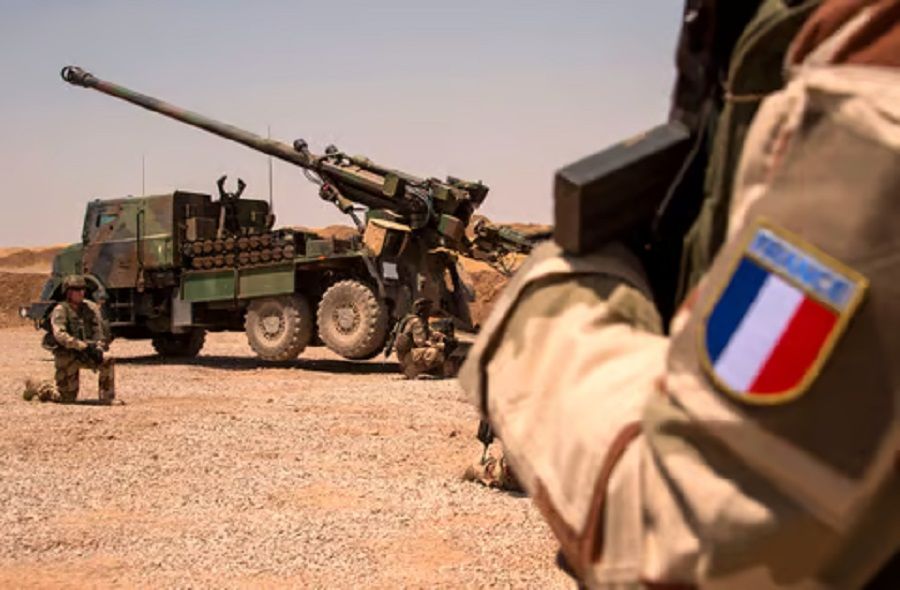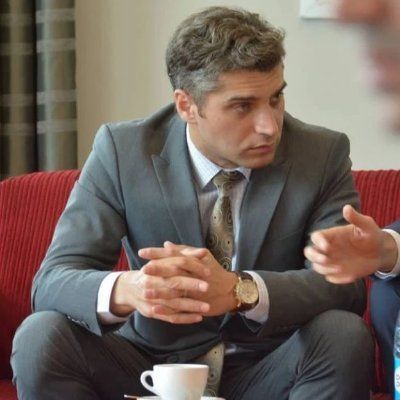South Caucasus facing French militarism

The chaotic struggle on the French political scene and the failure of the Macron government did not change the country's foreign policy position. Political commentators describe it in two ways: a strong pro-Armenianism in the French policy, which continues as a legacy, or the last chords of the Macron government, which is heading towards collapse. However, in all cases, the expansion of these harmful effects to the South Caucasus makes Baku extremely cautious.

Recently, official Baku prepared a harsh response to this. Thus, France's signing of an arms deal with Armenia right after the snap parliamentary elections was remembered with many remarkable moments. In particular, France's dual policy, that is, its leap from the Ukraine issue to the South Caucasus, gives grounds for all doubts. Today, the ongoing conflict in Ukraine is no longer in France's interests, so it puts Armenia in the foreground against the backdrop of internal political strife. There may be one reason why Paris armed Armenia on the eve of the steps towards peace: to destabilize the situation in the South Caucasus and to put its long-standing aggressive plan in the region.
There is no doubt that Baku is aware of these plans. For example, the boycott of France in Africa and a number of colonial territories is observed by the reduction of its military contingent in those territories. So, according to received data, France is going to reduce its military presence in West and Central Africa to 600 personnel.
A foreign media report says that Paris will leave about a hundred people in Gabon (now there are 350), hundreds in Senegal (instead of 350), and hundreds in Cote d'Ivoire (now 600). About 300 people instead of 1,000 will remain in Chad.
One of the reasons for the planned reduction was the announcement in France of early parliamentary elections “with an uncertain outcome for the presidential camp.
Until two years ago, in addition to 1,600 troops in West Africa and Gabon, France had about 5,000 soldiers in the Sahel. The contingent in Côte d'Ivoire, previously considered one of France's main allies in West Africa, has already been reduced from 900 to 600 people, and the withdrawal of military personnel has also begun from Senegal.
At the same time, France still intends to maintain a military base in Djibouti, where 1,500 troops are stationed. According to sources, France wants to maintain a strategic foothold in this small country, located opposite Yemen, at the outlet of the Red Sea, in the Bab el-Mandeb Strait, where most of the world trade passes between Asia and the West.
It is noted that this summer a command responsible for Africa will appear in the French Armed Forces, and the general who will lead it has already been selected.
In 2022, the French military, which had been present in the Sahel region since 2014 as part of the anti-terrorism Operation Barkhane, was forced to leave Mali. In July, France announced the official end of Operation Takuba, a joint counter-terrorism effort with European allies. In November 2022, the French President announced the end of Operation Barkhane in the Sahara-Sahel region. In March 2023, the authorities of Burkina Faso announced the denunciation of the military assistance treaty with France, which concluded more than 60 years ago. The Foreign Ministry of Burkina Faso also notified the French side that the French military must leave the country.
The presented facts signal French expansionism and at the same time its militarization policy. France's greed towards the world's poorest countries rich with natural resources and neo-colonialism policy are also evident in the South Caucasus today. Unfortunately, France, which always penetrates territories through intermediaries, tries to find a way to the South Caucasus region through Armenia. At a time when Armenia needs to develop itself in the economic field rather than arming and military preparation, France's “gift” of expensive weapons to it is completely inappropriate and unconstructive.
As for Armenia, official Yerevan considers the supply of arms to France and India as its sovereign right, and in its statement accuses Azerbaijan of “occupying” its strategically important villages. It means that Armenia is trying to implement what it cannot say and act with the support of its "allies". Yes, it is trying, but we wonder if Yerevan still dreams of winning a war.
In our opinion, the Russia-Ukraine war should be a vivid example for Yerevan. When the war began, France and other Western powers promised that they would never spare all their military support and that the war would soon end with the defeat of Russia. But reality does not reflect what is said today. For this reason, any dangerous step against the South Caucasus is primarily a threat to Baku.
---
Elnur Enveroglu is AzerNews’ deputy editor-in-chief, follow him on @ElnurMammadli1
Follow us on Twitter @AzerNewsAz
Here we are to serve you with news right now. It does not cost much, but worth your attention.
Choose to support open, independent, quality journalism and subscribe on a monthly basis.
By subscribing to our online newspaper, you can have full digital access to all news, analysis, and much more.
You can also follow AzerNEWS on Twitter @AzerNewsAz or Facebook @AzerNewsNewspaper
Thank you!

